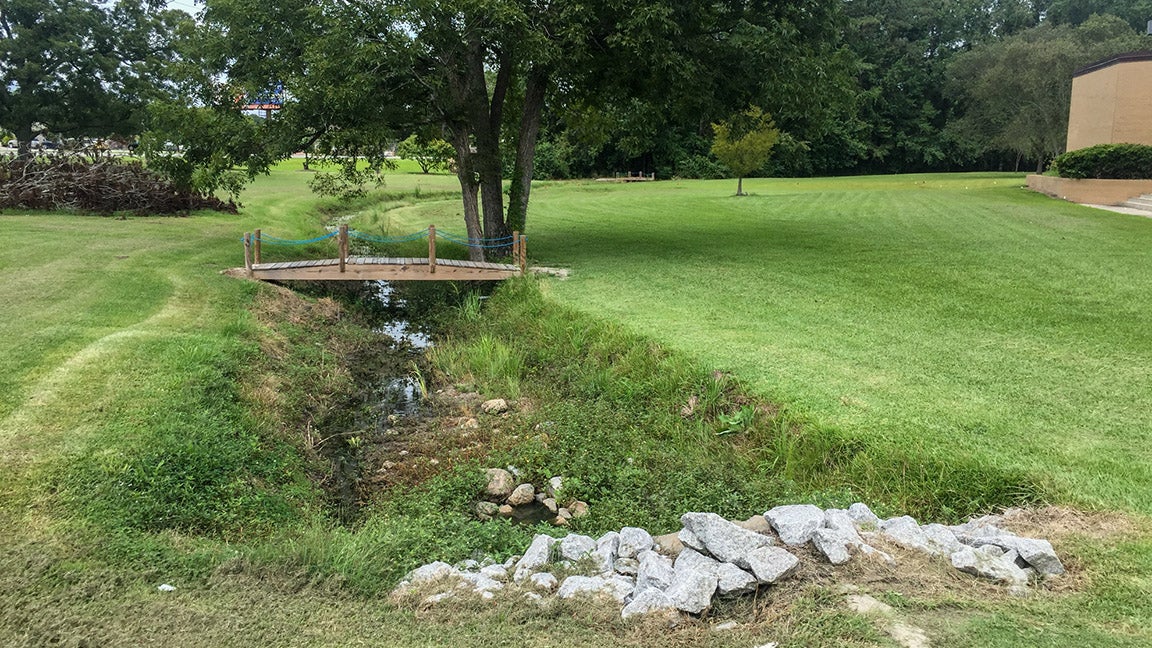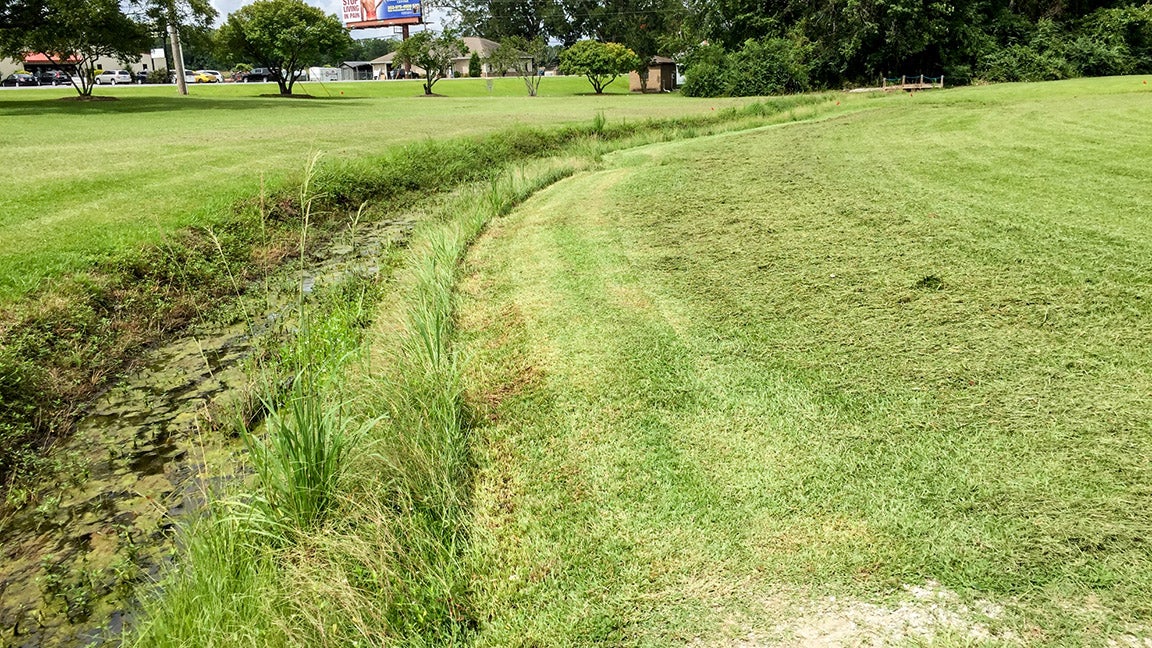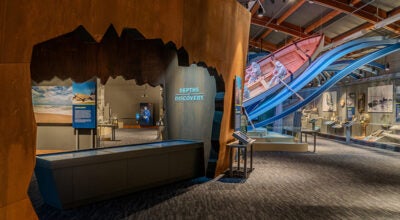BCCC and Sound Rivers to start construction on new wetlands
Published 9:32 am Saturday, September 5, 2020

- The current grassy field along the small creek on BCCC's campus will be reengineered to slow and clean runoff from the campus. Courtesy BCCC
|
Getting your Trinity Audio player ready...
|
Beaufort County Community College and Sound Rivers broke ground on August 24 on a new wetland on BCCC’s campus to help clean and slow stormwater. The two institutions have partnered since 2017 to study ways to slow and clean the water coming off its rooftops and parking lots during heavy rainstorms. As part of its mission to protect the Tar-Pamlico and Neuse Rivers, Sound Rivers has collaborated with community colleges, high schools and universities in the area.
The project will be located on the west side of campus along an existing creek. The project will cost $150,000 and is funded through an Environmental Enhancement Grant. The N.C. State University Biological and Agricultural Engineering Department evaluated the campus to develop a comprehensive plan to address stormwater on campus.
BCCC’s 100-acre campus sits in the watershed of Broad Creek, which flows into the Pamlico River. While the watershed closest to the creek contains mature forests that are ideal for cleaning stormwater, the large rooftops and parking lots on campus produce runoff created by rainfall. These parking lots and rooftops can create problems in smaller creeks because they can overwhelm them with polluted water.

The current grassy field along the small creek on BCCC’s campus will be reengineered to slow and clean runoff from the campus. Courtesy BCCC
Sound Rivers’ Campus Stormwater Program has 24 K-12 and college campus partners across the entire Neuse/Tar-Pamlico region. The organization has previously worked with Edgecombe Community College and East Carolina University to set up rain gardens and constructed wetlands. Students there can now incorporate the green infrastructure into their coursework as an outdoor classroom. Sound Rivers recently constructed a 10,000 square foot wetland at Havelock High School and installed two rainwater storage cisterns at New Bern and West Craven High School. They plan to work with Nash County Community College next year to develop similar projects.
BCCC has agribusiness and biology classes that will take advantage of the structures. The current project is the largest component of the stormwater plan. Smaller rain gardens and swales will be added in the future.
“We are excited for the opportunity to partner with BCCC on such an important project,” said Clay Barber, environmental projects manager for Sound Rivers. “Treating stormwater runoff and educating the general public is incredibly beneficial.”
A good stormwater system can slow down water coming off paved surfaces, meaning that it can reduce flooding and minimize erosion of stream banks, helping residents in floodplains and helping improve fish habitats. It can also filter some of the pollutants coming off the parking lot, such as oil from leaky engines.
“One of the comments we consistently get from students is that we have a beautiful campus,” said Jason Squires, director of campus operations. “This project will let us have smart and attractive ways to control our runoff.”
Stormwater infrastructure can take different forms. Rain gardens, bioretention cells and stormwater wetlands can not only clean and slow water; they can also serve as wildlife habitat and beautify campuses. They transform uninspiring ditches into pleasant landscaping. The result will help make the Pamlico River fishable, swimmable and drinkable, according to BCCC.
BCCC strives to build partnerships with community groups and local employers to improve the economic health of area residents. Now with its partnership with Sound Rivers, the college hopes to improve the health of the river that so many residents rely on for recreation.
READ ABOUT MORE NEWS AND EVENTS HERE.
RECENT HEADLINES:
USDA waiver extension allows for no-cost student meals through end of year





